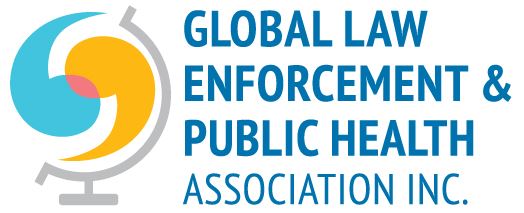
By Tasneem Ur Rehman
 @AllogeneousJano
@AllogeneousJano
COVID-19 and health facilities for police in Pakistan
Health is a fundamental element in the success of a nation with social, economic, biological and environmental determinants affecting the health of every society. Police face numerous challenges that impact their health while serving as front-liners to protect others and the nation. The work of police officers differs from some occupations because they have direct contact with the public at every level and are deployed in both open and closed spaces. Police officers are busy in ensuring public safety, investigating cases, arresting criminals, maintaining law and order situations and providing or arranging security. Following outbreaks of COVID-19, police are now enforcing lockdown laws and implementing social distancing protocols. Due to restricted resources and increasing workload, police officers face risks associated with mental and physical health. They are also exposed and vulnerable to the COVID-19 outbreak by continuous contact with the public.
In most countries, policing remains a male-dominated occupation. Physical health determines the mobility and activities of an individual in day to day life. The health of police is a key factor in their ability to work. The fatality rate among COVID-19 sufferers is affecting men disproportionately. In Pakistan, police even face work-related diseases which can be undiagnosed or incorrectly reported. Police officers, especially men, face health issues and suffer from diseases such as cardiovascular diseases, diabetes, hepatitis, chest infection, typhoid fever, food poisoning, malaria, dengue fever, blood pressure, depression, stroke, mental health and trauma, allergy and cancer diseases which place them at high risk. Police have a tough and stressful job with them being required to potentially work day and night with no rests. This intensive workload has a major impact on police and such long duties negatively affect their mental and physical health. In Pakistan, there is a lack of sufficient personal protective equipment (PPE) in the time of the COVID-19 crisis. Providing PPE is one of the most important steps for protecting police personnel.
In Pakistan, only a small proportion of the police have access to occupational health and medical services. According to statistics, there are 490,267 police officers both uniformed and non-uniformed in Pakistan (excluding National Highway and Motorway Police (NH&MP) and Railways Police). Police departments must also confront the challenges associated with the impact of poor officer health and mental well-being. Amid the current pandemic, thousands of police officers are infected and have died of COVID-19 worldwide. According to statistics from different countries, as reported in the United States of America (USA), 5,361 police officers in the New York Police Department (NYPD) have tested positive for coronavirus with 41 police officers having lost their lives. In the Republic of Peru, 3,873 police personnel are infected with the virus and 46 police officers have passed away. In Bangladesh, more than 1500 police officers have tested positive and in India over 1300 police officers. In South Africa, 370 police personnel are infected of COVID-19 with 2 fatalities of police officers. In Pakistan, over 740 police officers have contracted COVID-19 and 10 police officers have died in the line of duty after getting infected. Many officers in Pakistan who were placed in quarantine have recovered from the virus. This reveals a critical situation around the world in terms of police personnel contracting the virus.
In Pakistan, 12 Police hospitals are known for providing services to police personnel. The provincial breakdown of police hospitals includes 3 in Sindh for 144,000 police personnel, 4 in Punjab for 169,127 police personnel and 5 in Khyber Pakhtunkhwa (KP) for 120,000 police personnel. Unfortunately, there is no police hospital constructed for 30,837 police personnel in Balochistan, 8,323 police personnel in Azad Kashmir and 5,980 police personnel in Gilgit Baltistan (GB). Moreover, the Interior Ministry granted permission to construct a major hospital for 12,000 police personnel in Islamabad but has not yet been constructed. Police officers do not have access to proper health facilities and there is an absence of such basic facilities for police nationwide. Moreover, there is no connection with private hospitals at the provincial or regional level in all provinces. There is no separate major public or private hospital for police and their families to offer better health facilities. Recently, a police officer from Khyber Pakhtunkhwa (KP) Police in Pakistan died of illness. He was stationed at Peshawar and died due to a lack of access to adequate healthcare and the release of funding was too late. Similarly, another police officer who was stationed in Abbottabad district of KP, lost his battle against cancer. Such diseases are common in police personnel in Pakistan and health facilities need improvement.
Interestingly in Australia, police are responsible for providing health services to police personnel across the country with respect to work-related injury or illness. Likewise in Peru, ESSALUD is a public entity of Social Health Security which provides 30% health insurance/services to the population as well as the Peru National Police (PNP). In Paraguay, the National Health Council has one representative from the Police and the National Health System provides health facilities to police and their families across the country.
In this regard, police leadership in Pakistan should come forward and stand with police personnel in these difficult times. Police leaders should demand that government representatives provide adequate healthcare facilities for police who serve the nation and construct police hospitals on behalf of police departments. Police departments must also conduct regular health reviews and checks up of police personnel for ensuring a healthy and efficient police workforce. COVID-19 is continuously posing health risks to police officers who are trying their best to deliver services 24/7. The Government must take necessary steps for ensuring the safety of police personnel. The Federal and provincial governments should upgrade existing police hospitals and build more hospitals at federal, provincial, and regional levels for police with better health services. Police are risking their lives and sacrifices of police heroes are made to keep people of our country safe. May Allah give all police officers sound health Ameen! Salam Police
Author Details: Tasneem Ur Rehman works voluntarily on Police Reforms in Pakistan and is a member of the Pakistan Police Reforms Think Tank (Internet Based). He can be reached at @AllogeneousJano on Twitter.
